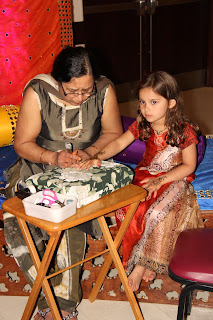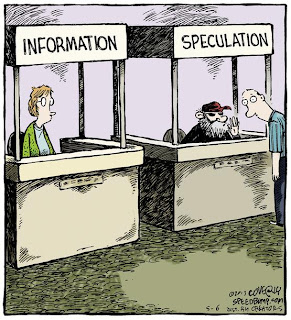You all know, Dear Readers, that I love words. I especially love puns, those word jokes defined as "the humorous use of a word in such a way as to suggest two or more of its meanings or the meaning of another word similar in sound." I got this love of puns from my mother, who was a world-class punster, but most of my family has it in some degree or another.
For this reason, it was with some amazement that I stumbled upon this article by Simon Akam on Slate.com the other day: Please Do Not Chillax - Adjoinages and the Death of the American Pun.
The article brought up a point I hadn't thought about before: the difference between a pun (as we generally understand it) and an adjoinage, a different verbal animal that many people today sometimes consider to be a pun.
Adjoinages combine two words to make a new word or concept, and in this way they relate to the pun's use of different pronunciations of a word for comic effect. Two examples of adjoinages from the article are chillax (chill + relax), meaning to calm down; and bridezilla - referring to the bride whose desperate quest for the perfect wedding turns her into a raging monster (bride + Godzilla). Are adjoinages puns? No. Mr Akam writes,
"One erudite friend of mine suggests that the current crisis in American wordplay can be traced back to the Watergate scandal of the 1970s and the subsequent tendency to append any scandal-related noun with the suffix -gate. Before Nixon fell, my friend suggests, 'All American puns rhymed perfectly and snappily, as if the whole country were a Cole Porter musical.' While this may not be precisely accurate, it is true that in the United States puns have come in and out of favor over time ... the American pun persisted through vaudeville and comedians like the Marx Brothers and George Burns, before falling out of favor after World War II, as falling taboos made previously forbidden topics (e.g., divorce, sex, general dysfunction) legitimate material for a new American humor less reliant on wordplay."
The beauty of a pun lies in its simple twist on the sound and meaning you were expecting. A really good pun sneaks up on you, whacks your funnybone, and leaves you marveling at its clever wit. Adjoinages may also be clever, but are seldom as intricately funny on multiple levels as are puns.
Puns can be based on a single word, or on more than one. They can rely on sound, meaning, or both. Consider these examples:
Homophonic puns substitute one word for a similar-sounding word ...
"Corduroy pillows are making headlines;" or,
"Did you hear about the optometrist who fell into a lens grinder and made a spectacle of himself?"
Puns can be based on a single word, or on more than one. They can rely on sound, meaning, or both. Consider these examples:
Homophonic puns substitute one word for a similar-sounding word ...
"I bet the butcher the other day that he couldn’t reach the meat that was on the top shelf. He refused to take the bet, saying that the steaks were too high."
Homographic puns use a word that has two different meanings, or substitute a word with the exact same spelling as the word for which it was substituted -
"Did you hear about the optometrist who fell into a lens grinder and made a spectacle of himself?"
And then there are compound puns, which use a string of two or more words that sound similar to a string of different words, like these ...
"Where do you find giant snails? On the ends of giants’ fingers;" and,
"A man walks into a psychiatrist’s office wearing only shorts made of plastic wrap. The doctor says, 'Well, I can clearly see you’re nuts.'"
Of course, if you overanalyze a joke, it loses some of its meaning. So I'll just drop the discussion here and encourage all of you to support your local pun, and keep this noble joke from dying out. If you have a favorite pun, leave it in the comments for the rest of us to enjoy.
Have a good day. See you back here for Cartoon Saturday.
Bilbo
















































